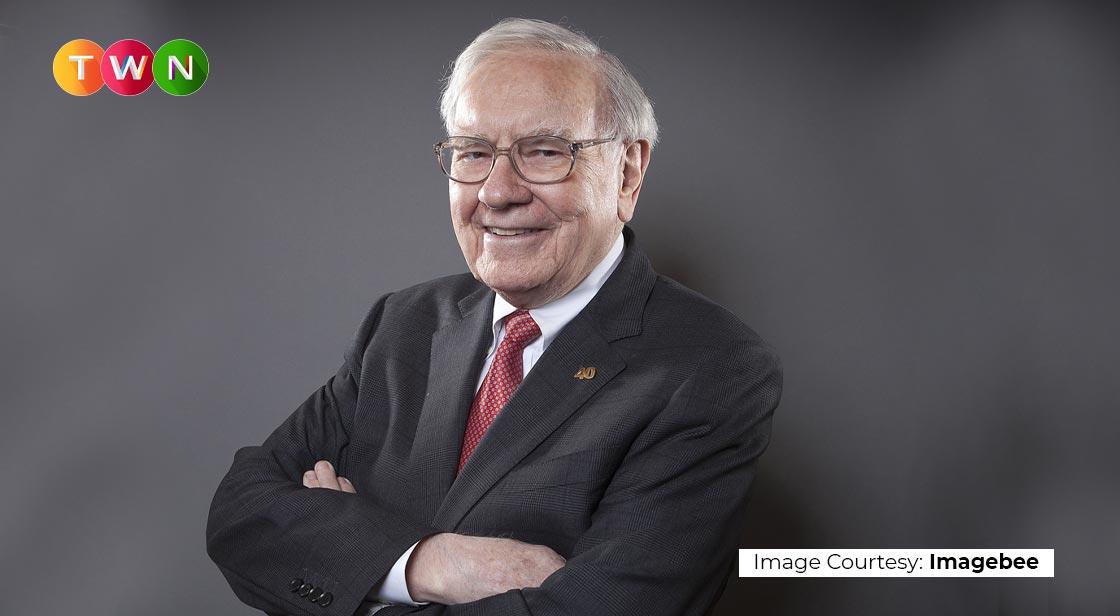Value Investing: How to invest like Warren Buffett

Blog Post
Value investors aggressively seek stocks that they believe the market undervalues. Value investors utilize financial analysis, don't follow the crowd, and invest in high-quality companies for the long run. It is not easy to make money in the equity markets. Even more so when markets around the globe are in distress. Investors like Warren Buffett are an inspiration worldwide. His learnings are vast and his letter addressed to shareholders has served as a guide for value investing for investors over the past 4-5 decades. We will discuss some of Warren Buffett's investing strategies in this blog post. #ThinkWithNiche
Picking stocks that appear to be trading for less than their fundamental or book worth is value investing. Value investors constantly seek stocks that they think the market undervalues. They believe that the market overreacts to both excellent and bad news, resulting in stock price swings out of line with a company's long-term fundamentals. The market's overreaction provides an opportunity to benefit by purchasing stocks at a discount—on sale.
The founder of Berkshire Hathaway, Warren Buffett, is regarded as the god of investments worldwide. The world responds to what he says or writes about money and investment. Money attracts money, hence it can never increase in value unless it is reinvested. That is Buffett's viewpoint. "When a person with money meets a person with experience. In this article, we will explore Warren Buffett's top investment mantras.
Warren Buffett's Top Investment Mantras
1. Understanding the Concept of Value Investing
The basic idea behind everyday value investing is simple: if you know what something is worth, you can save a lot of money simply by buying it on sale. Most people would agree that whether you buy a new TV on sale or at full price, you get the same screen size and visual quality. Stocks act similarly, which means that the stock price of a firm might fluctuate even if the company's value or valuation remains constant. Stocks, like televisions, go through cycles of higher and lower demand, resulting in price fluctuations—but that doesn't change what you get for your money. Value investing is the strategy of researching to reveal hidden stock sales and purchasing them at a lower price than the market value. Investors might be handsomely rewarded for buying and keeping these value equities for the long term.
2. Intrinsic value and value investing
Investors use a range of indicators to find out exactly a stock's valuation or intrinsic value. Financial analysis, such as analyzing a company's financial performance, sales, earnings, cash flow, and profit, as well as fundamental aspects, such as the company's brand, business model, target market, and competitive advantage, are all used to determine intrinsic value. The following are some of the metrics used to value a company's stock: Price-to-book is a rate that equates the value of a company's assets to its stock price. The stock is undervalued if the price is less than the value of the assets, assuming the company is not in financial trouble. Price-to-earnings ratio, reveals the company's profits history to see if the stock price is cheap or not reflecting all of the earnings.
3. Don’t follow the herd
Value investors have a lot in common with contrarians in that they don't follow the crowd. They not only reject the efficient-market idea, but they also sell or stand back while everyone else is buying. They're buying or holding when everyone else is selling. Trendy stocks aren't bought by value investors because they're usually overvalued.
4. Listening to your emotions
When making investment decisions, it's difficult to disregard your emotions. Even if you can evaluate figures objectively and critically, fear and exhilaration may arise when it comes time to utilize some of your hard-earned cash to buy a stock. More crucially, if the stock's price declines after you buy it, you may be inclined to sell it. Keep in mind that the goal of value investing is to avoid panicking and following the crowd. So avoid the temptation of buying when stock prices are rising and selling when they are falling.
5. Focus on business quality
Buffett believes that it's better to buy a great company for a fair price than to purchase a company with great returns at a fantastic price. Buffett is referring to the fact that firms with high capital returns can compound earnings faster than businesses with lower returns. These firms have a higher intrinsic value over time.
6. When you purchase something, be prepared to keep it forever
Buffett's strategy focuses on the idea of buy and hold. Buffett is a firm believer in quality businesses earning high returns and increasing in value over the long term. He famously said, "Be fearful when others are greedy and greedy when others are fearful".
7. Be confident in your ability to become rich
Buffett says that trusting yourself is the most important rule. Buffett says, "If you don't believe in yourself, then forget about making money." Until you believe, nothing will work for your business. Nobody can be perfect or have a vision of a business or company that will do amazing things in the future. Don't trust anyone and do what you feel is right. Buffett said, "I trust my decisions, even if I fail to make good choices sometimes, but I still believe in my guts and know-how."
8. Invest in your knowledge.
Buffett says, "Read lots, that's the way you become rich." If you make it a habit to read a book every day, you will be on the right track to success. Buffett says that reading books written by rich and successful people can help you to learn a lot. To start your journey to luxury, go to the library or order your favorite books. He believes that knowledge is the key to wealth.
9. Follow the right news.
Keep up with the latest news about your investments. Do not buy or sell things blindly. Keep up with the news and follow the world. Buffett said that "waiting for the right opportunity is good but how will you discover the right one, keeping yourself updated with all the happenings related to your investment can make you do the right with your portfolio at the right time. Imagine you purchased some equity in a business, but that business is no more legal in a particular country or government has announced its closure, if you are aware of the news, you still have chances to save your money by pulling back your funds, but if you don't, you are dead."
10. Don't hesitate in making mistakes.
If one isn't making mistakes, he isn't learning. Buffett said, "Don't worry, if you are making mistakes, but learn from them and don't repeat".It is impossible for a child to learn how to walk until they fall and then stand again. Therefore, one should not dwell on the mistakes made and should take corrective action immediately. Making mistakes is a part of life. You must start small, invest very little, and not be afraid to make mistakes. The one who has climbed Mt. Everest is not perfect. Everest has never given up after making mistakes.
Conclusion
Long-term value investing is a strategy. For example, Warren Buffett buys equities to hold them for a long time. "I never try to earn money on the stock market," he once declared. I buy on the expectation that the market will close the next day and will not reopen for five years." When it's time to make a significant purchase or retire, you'll probably want to sell your stocks, but by diversifying your portfolio and keeping a long-term vision, you'll be able to sell your stocks only when their price exceeds their fair market worth.
You May Like
EDITOR’S CHOICE












